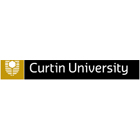Master of Geospatial Intelligence
Master of Geospatial Intelligence
Geospatial intelligence is the field of extracting actionable knowledge from location-based data. It helps urban planners to make informed site selections; conservationists to predict impacts from climate change; agriculturalists to improve paddock management decisions; and geologists to construct models to narrow the exploration search space. In this course you’ll increase…
Categories
COURSE DESCRIPTION
Geospatial intelligence is the field of extracting actionable knowledge from location-based data. It helps urban planners to make informed site selections; conservationists to predict impacts from climate change; agriculturalists to improve paddock management decisions; and geologists to construct models to narrow the exploration search space.
In this course you’ll increase your knowledge of geospatial intelligence and strengthen your skills in geospatial analytics, location-allocation, dataset integration and modelling of multiple datasets. You’ll also learn how to write scripts to automate complex tasks.
In your second year, you’ll undertake a critical literature review and complete a significant research project on a chosen topic.
You’ll graduate with skill sets that combine remote sensing, geographic information systems (GIS), data management, visualisation and other geospatial tools that enable you to describe, analyse, dissect and interpret large, diverse datasets.
This is a nested course that is suitable for those seeking to boost or change their career. The graduate certificate and graduate diploma courses are stepping stones to this master course.
See our handbook for more course information.
What you’ll learn
Apply advanced principles of geospatial technology to a range of application areas
Critically analyse spatial data and issues to devise novel and appropriate solutions
Investigate and select appropriate datasets/imagery and software to analyse, transform, and present findings using methods suitable to specialist and non-specialist audiences
Recognise and be engaged in spatial issues that occur in other countries and/or on global scales
Appreciate and interact with people across different cultures and respect different perspectives
Collaborate with industry to develop professional initiative, problem solving ability, team and communication skills as well as gain exposure to real-world, location-based, problems
REQUIREMENTS
Specifically, applicants require a recognised Bachelor Degree in any discipline. A background in mathematics or statistics equivalent to first-year university level is recommended. Applicants without this background may be required to undertake appropriate preparatory units.
Certificate in Advanced English (CAE): 176; and Pearson Test of English Academic: 60. IELTS Academic (International English Language Testing System): Writing, Speaking, Reading, and Listening: 6.0; Overall band score: 6.5; TOEFL (Test of English as a Foreign Language): 79 Overall; Reading 13 Listening 13 Speaking 18 Writing 21.
EDUCATIONAL INSTITUTION
Curtin University is Western Australia’s largest and most culturally diverse university with Australia’s third largest international student population. Around 60,000 students from more than 130 countries study a Curtin degree, at locations including Perth, Margaret River, Kalgoorlie, Sydney, Malaysia and Singapore. Our cultural diversity adds a rich and valuable dimension to the campus atmosphere, preparing all graduates to live and work effectively in an increasingly global environment. We offer a range of industry-aligned undergraduate and postgraduate courses in business, humanities, health, engineering and related sciences. We also have a long-standing focus on Aboriginal and Torres Strait Islander education and culture, supported by our Centre for Aboriginal Studies.Curtin is widely recognised for its practical research that is focused on solving timely, real-world problems. In recent years our research activity has grown significantly, driving our rapid rise up the international university rankings.As a university that never settles, we will continue to develop existing partnerships and establish new ones in areas relevant to our research and teaching.

